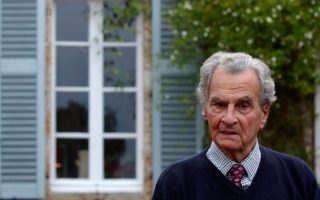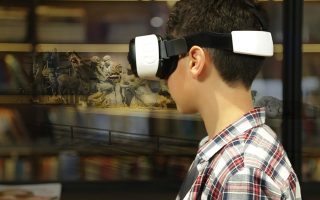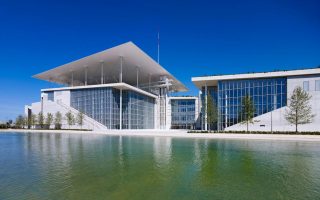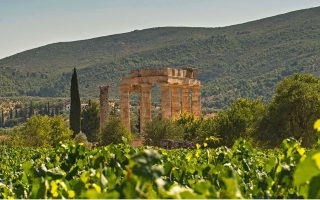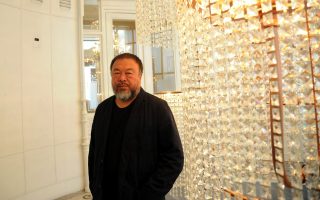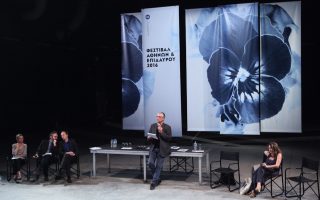The Academy of Athens: Opening up to society
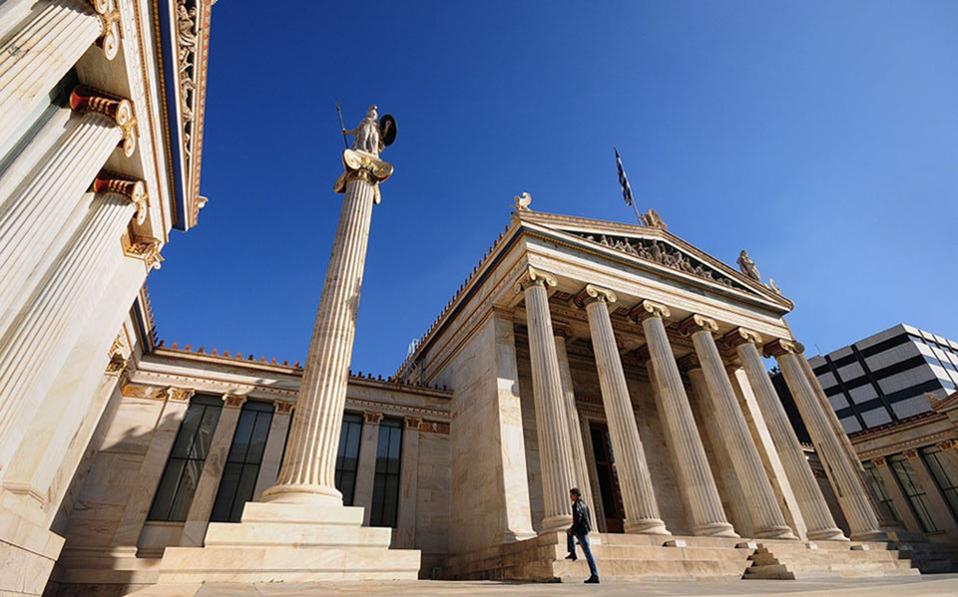
In the last few years a lively debate has been taking place both inside and outside the walls of the Academy of Athens on whether the country’s leading intellectual institution ought to open up more to society and, if so, how. While the French and Italian academies use Twitter as a means of reaching the younger generation, Greece’s academy has yet to take advantage of new media. As a result, the institution, which conducts scientific research projects and studies in the areas of agriculture, industry, shipping and the national economy, needs to get up to speed in these particularly challenging times.
Nevertheless, progress is being made. This year, for example, saw the election of three new members whose achievements go far beyond their job descriptions. Former Benaki Museum president Angelos Delivorias, who is credited with transforming the country’s museum landscape through a unified narrative of Greece’s history, is a man of action who is not afraid to express his opinions. Then there’s Costas Synolakis, professor at the Technical University of Crete’s Environmental Engineering School, who has conducted internationally acclaimed research on earthquakes and tsunamis; and last but not least, economist Vassilis Rapanos, who has made major contributions to budgetary theory following extensive experience at leading Greek financial institutions. Among others, they join Cypriot economist Christopher Pissarides, historian Miltiades Hatzopoulos, former EU Ombudsman Nikiforos Diamandouros and composer Theodore Antoniou.
It would not be wrong to assume that the newly elected members could become a kind of intangible bridge between the Academy and a local society which is being put to the test and is in dire need of calm voices that can speak with rationalism based on thorough knowledge.
“Emphasis is placed not only on the members’ scientific achievements but also their personalities and their ability to help the institution listen to new needs,” Thanasis Valtinos, the institution’s president, told Kathimerini.
“My election to the Academy of Athens is a huge honor and a huge challenge, given that I’m one of the younger members,” noted Synolakis. “In my opinion, during these particularly tough times, the institution should contribute to the dissemination of excellence and the promotion of meritocracy. Above all we should take a look at how these accumulated intellectual assets could operate as an advisory body based on its members’ specialized knowledge for the creation of a new narrative for Greece and the development of a new vision.”
For Delivorias, becoming a member of the Academy of Athens was the “ultimate recognition” of his efforts to forge ties between “museum organizations, the state, the public and culture in general.”
“People don’t change, no matter how old they are, and I believe that my work at the Academy will be to try to promote the institution’s broader oeuvre, displaying the same passion as I did at the Benaki Museum. I think this target will be welcome in my new environment. The aim is for the institution to acquire stronger ties to society,” he added.
Rapanos holds similar views. “To most Greeks, the Academy of Athens might come across as an inaccessible institution,” noted the economist. “But times are changing, the certainty of prosperity and complacency is over and the country is facing new challenges. I believe, therefore, that the kind of sobriety and solidity that define this intellectual institution make it stand out as an organization of increased responsibility vis-a-vis Greek society, and this is why it is a huge honor for me to serve its scientific and moral principles.”
Speaking via phone, London-based Nobel laureate Pissarides noted that “science is useless if not implemented in everyday life.”
“I was particularly pleased to become a member of the Academy of Athens and I wish for my home country, Cyprus, to acquire a similar institution. Meanwhile, in Britain, where I’m a member of the Royal Society, I have been observing over the last few years the major efforts made by the institution to connect with the world of scientific research and service society. Looking at my field, I believe that the sort of documented theoretical and practical knowledge that exists at institutions such as the Academy could very well include the development of plans for economic growth,” he said.
